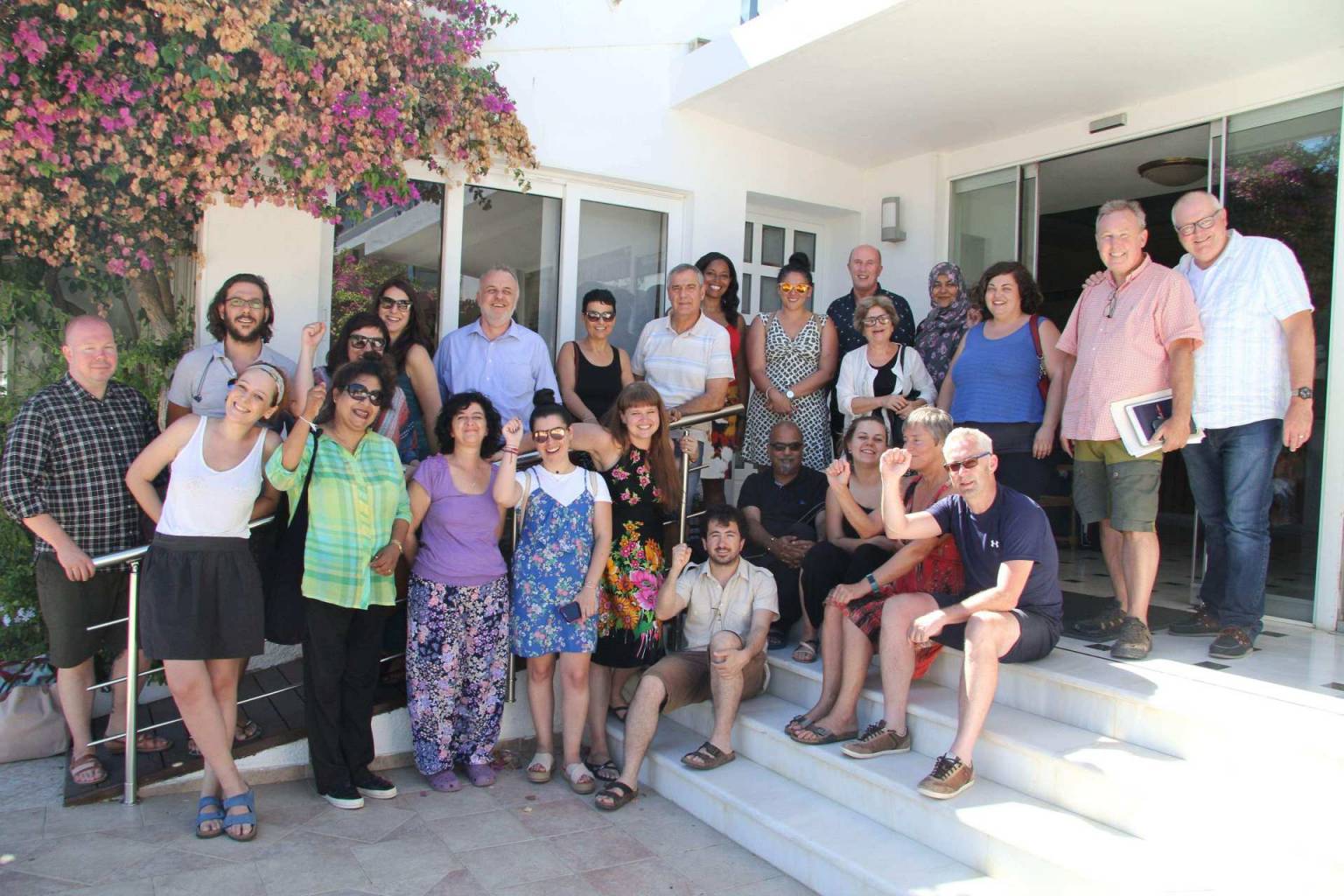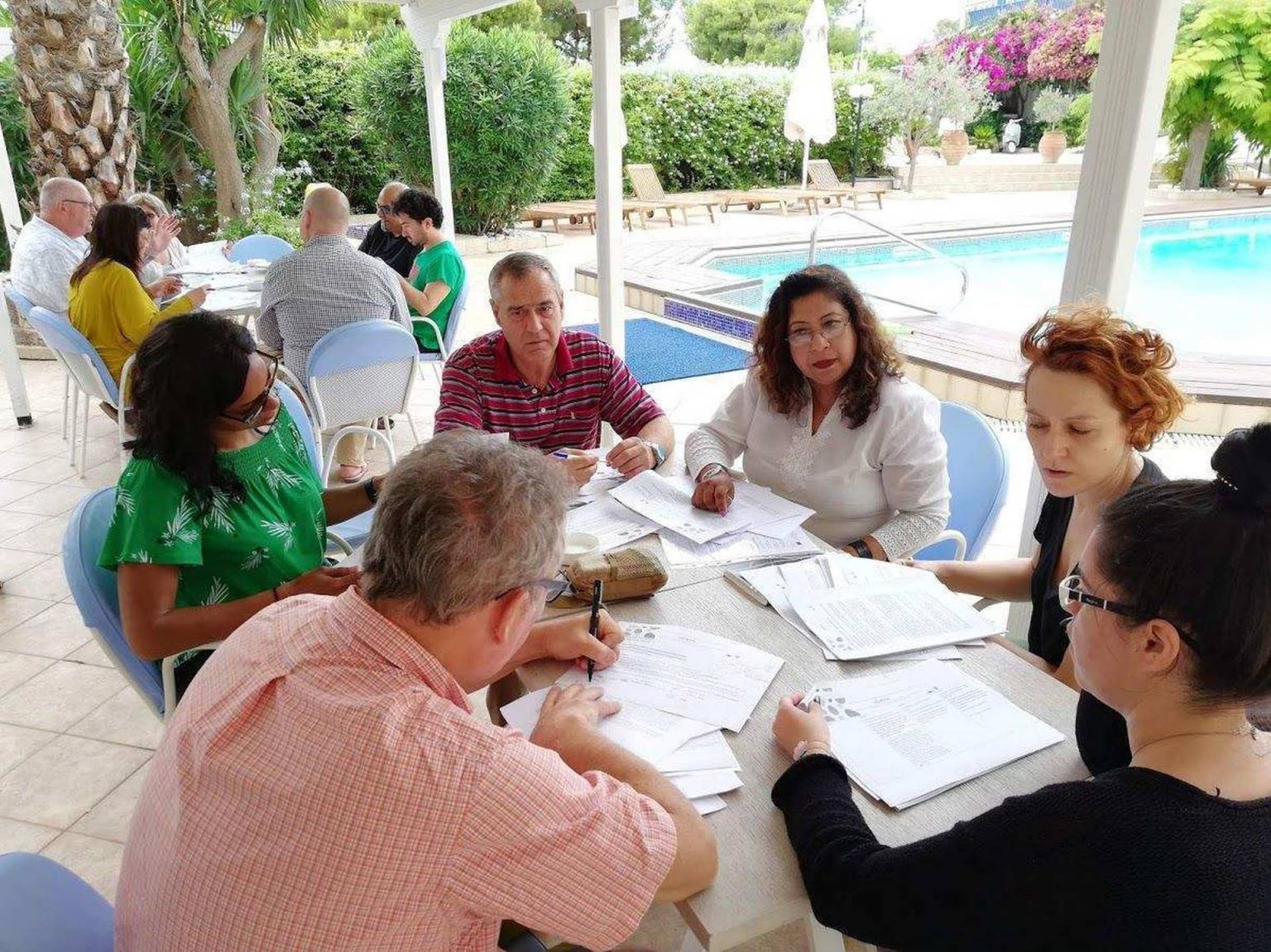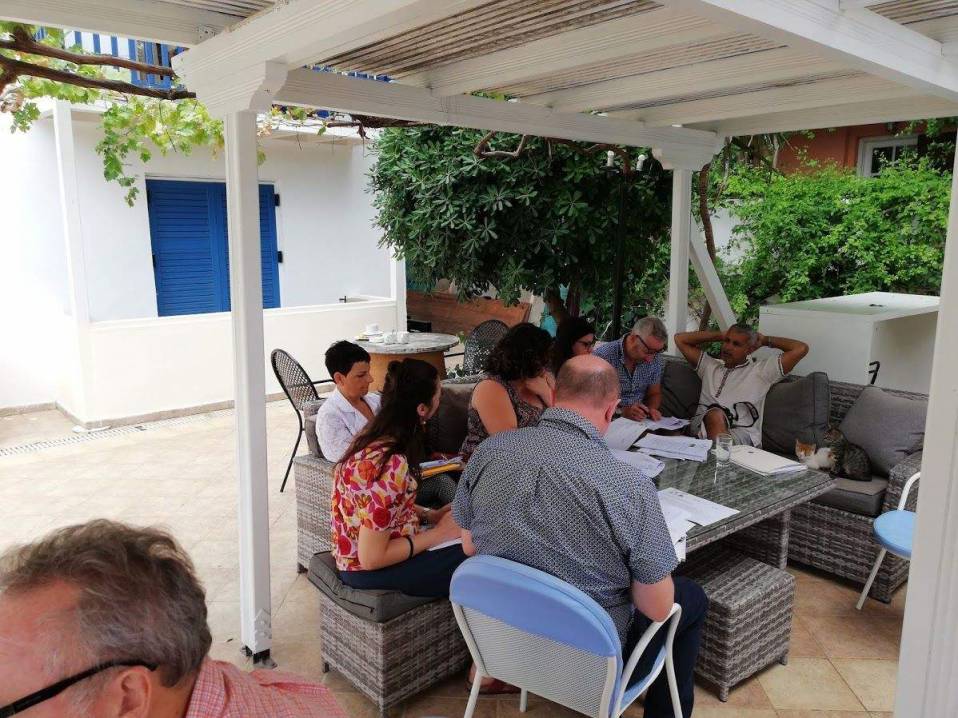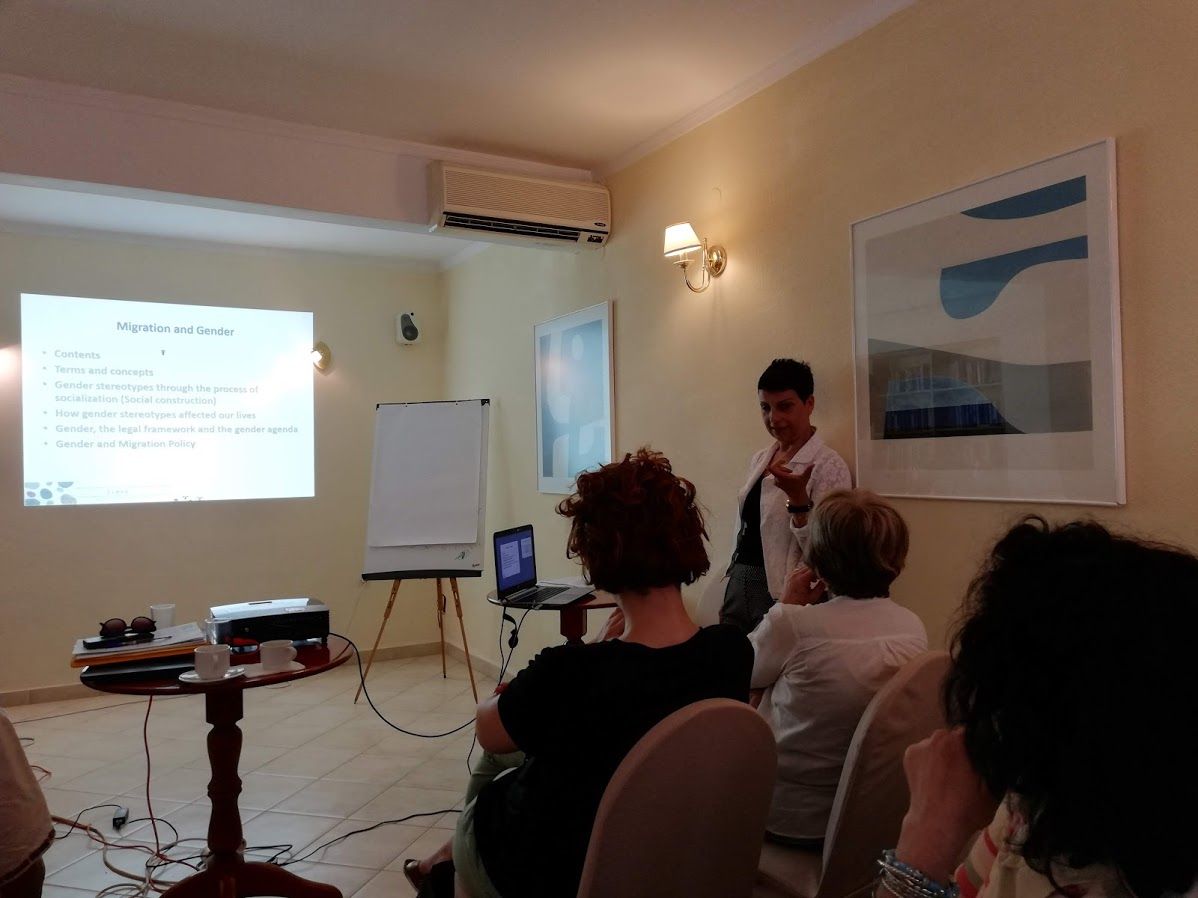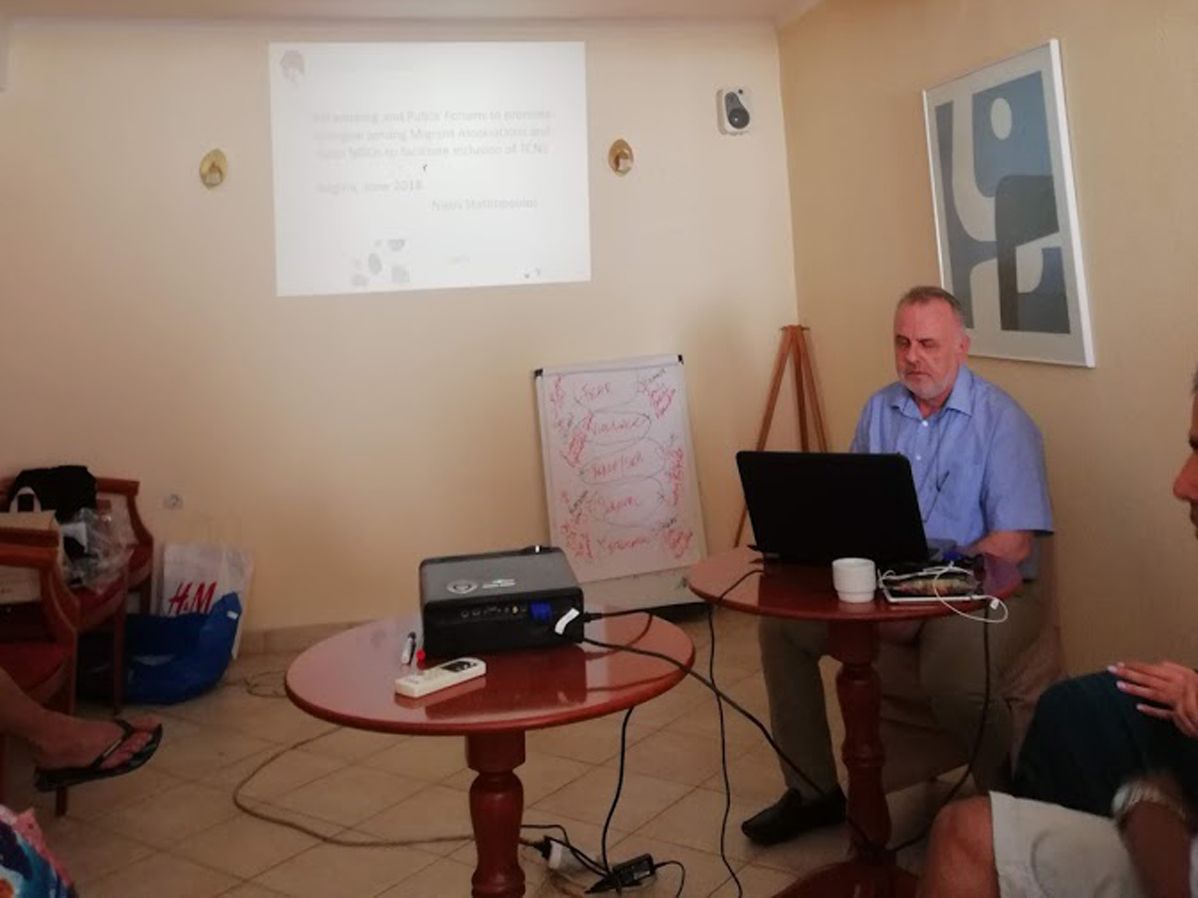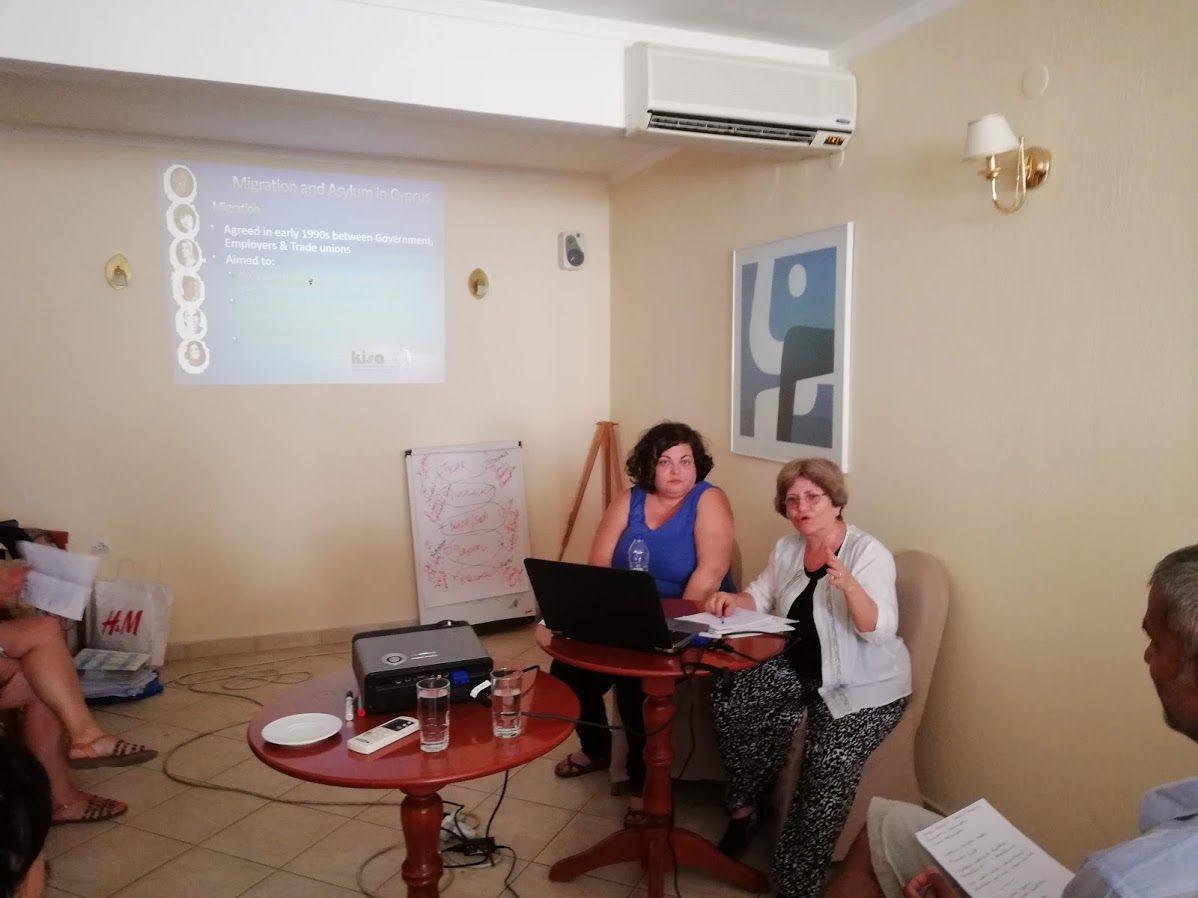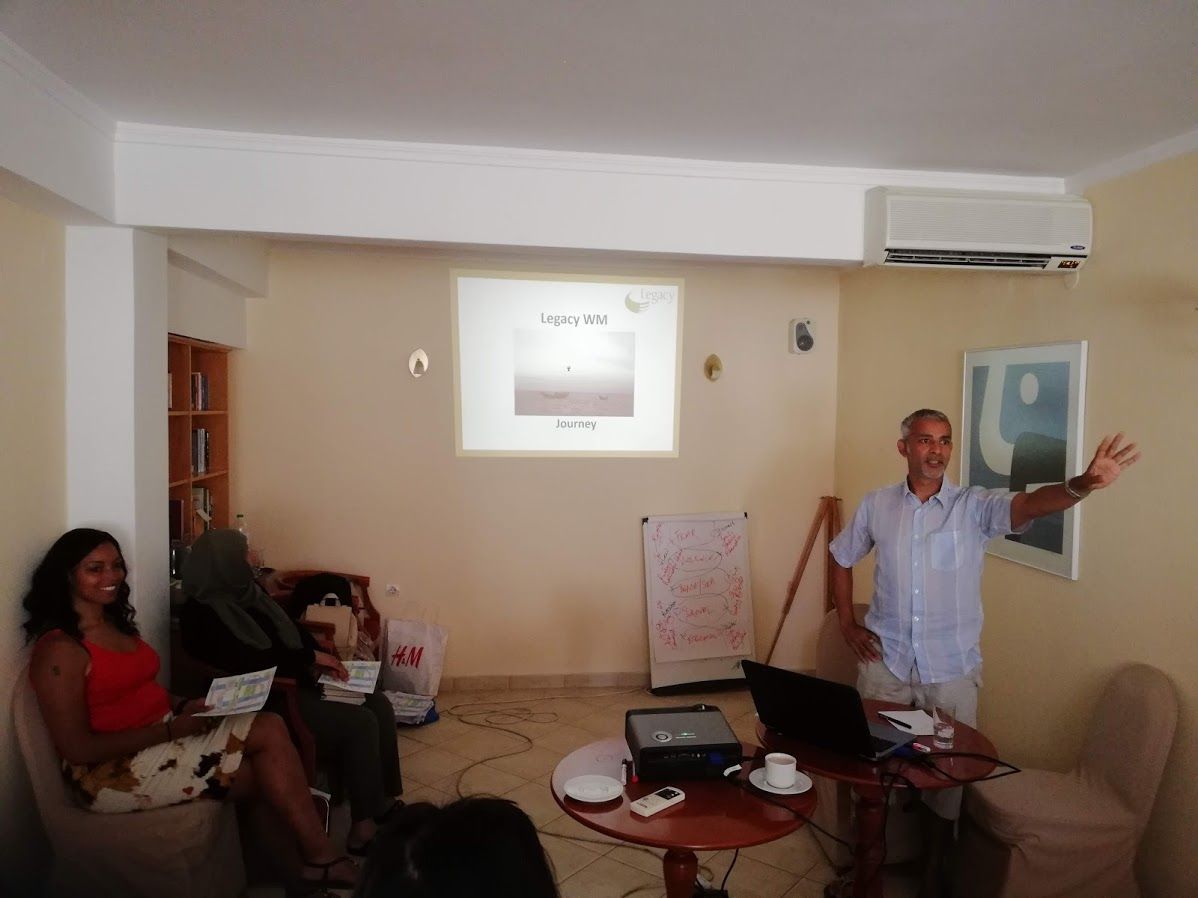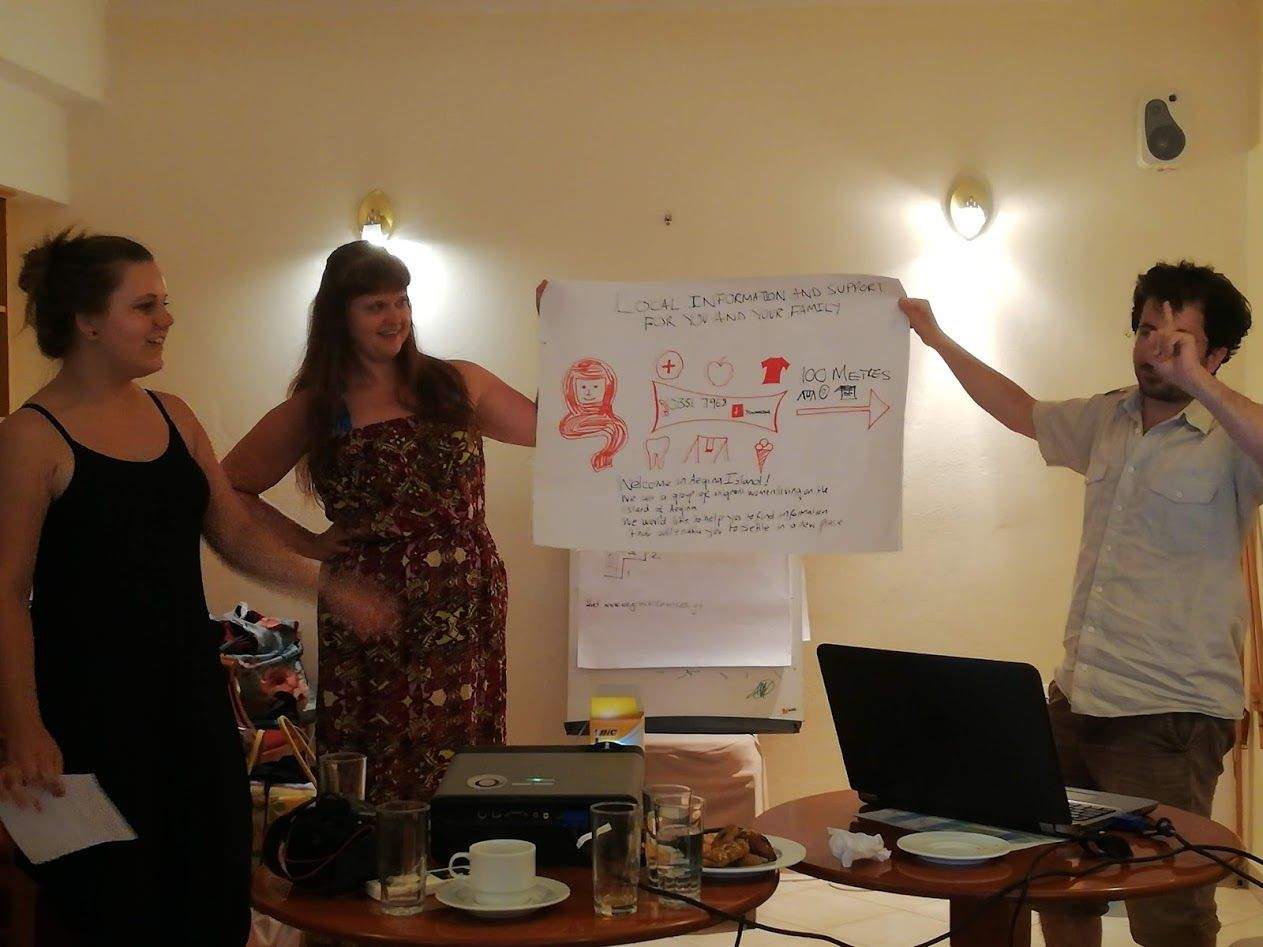


Research for the gender equality in the family – the role of the state and social institutions
The objective of this research study was to examine the perceptions of young men and women aged 18-35 as they relate to gender equality in the family and the role of the state and the social institutions. Hypatia Foundation Promoting Equality carried out this research study. Research findings will be utilized by the Centre of Gender Equality and History and by Cyprus Family Planning Association in implementing the project “Youth and Gender Equality in the Family: The Role of the State and the Social Institution” funded by the ERASMUS+ Programme.
1. Aims and methodological framework of the research study
The research study consists of two parts:
a) A web based quantitative survey and/or delivery of questionnaires in person for migrants. Questionnaires were drafted in Greek and English. A total of 267 people participated in the survey.
The survey team aimed at a gender balanced participation in the survey e.g. 100 men and 100 women, at least 15 migrants and 15 persons with disability (hearing impaired). The final sample consist of 89 men (44,5%) and 111 women (55,5%), 18 migrants and 14 hearing impaired people. The ratio of family status includes:
• Married/in partnership - 43%
• Single/in relation – 53%
• Divorced/separated - 4%
The age breakdown is as follows: Age group 18-24 at 25%, Age Group 25-30 at 32% and Age group 31-35 at 43%.
b) A qualitative research by conducting four focus group discussion sessions, two of which consisted Cyrpus and EU nationals, one consisted of migrants (conducted in English) and another consisted of hearing-impaired people (conducted in sign language)
2. Key findings of the web-based survey and the qualitative research
Demographic findings
a) Educational attainment: An impressive 71% of the sample earned a university or post graduate degree which well beyond national average that stands at 32%. A percentage of 21% had as the highest educational achievement a high school diploma which is much lower than the national average that stands at 51% for man and 42% for women. Only 4% of the sample received a degree from a technical college.
b) Family status. Married women make up 36,9% of the sample and men 25,8% of the sample. Single women stand at 23,4% of the sample population and single man at 43,8%. Men with children are at 10% of the sample or 22,5% of male sample population, while mothers make-up the 18% of the sample or 32,4% of female sample. Age group 31-35 has a majority of parents with 80% of those with children.
c) Employment: Women are employed full-time at 65,8%, while man are in full-time employment at 57,3%. Man hold part-time positions at 18% and women 8,1%. Unemployment stand at 11,2% for men and 6,3% for women. The eight-hour per day work is at 20% of the sample.
Findings
Aversion to gender stereotype roles in running the household and caring of children.
Quantitative results indicate the aversion of men and women towards gender stereotypical roles for the operation of the household and caring for children. Qualitative results also indicate the assertiveness of women to fight for the elimination of stereotypes as they relate to cleaning duties, running chores, helping children with study, caring for a sick child. These findings also support the theory that gender stereotypes are major barriers for the insertion and upwards mobility of women in the world of work. Qualitative research also pointed out these issues.
State social support structures are imperative in encouraging young couples bear children.
Finding from the qualitative research indicated the importance of public policy that contributes significantly towards gender equality in the family. These include adequate nurseries, kindergartens and whole day school programs. On the other hand, findings from quantitative research indicate in a vast majority of 89% that is very important for parents to have access to free or low-cost nurseries and pre-school centres. Findings from the quantitative report also indicate the deficiency of such family support structures, at the rate of 66% of the sample.
Women and reduction of work hours or stop work in favour of the family:
Men and women disagree with this prospect at a rate of 75% of the sample. However, 25% of the sample leaves it open or agrees with this prospect. This means that an important percentage of the sample population accepts the dedication of women to creating and caring for the family in the expense of her career. The same inclinations were noted in the qualitative sessions with a condition that the parent who will work reduced hours (usually women) will not bring a negative impact on professional development and promotion opportunities.
Mandatory paid maternity leave for father equivalent to maternity leave for mother.
Findings from quantitative research indicate acceptance of such a prospect by 72% of the sample population. Qualitative research findings also indicate this prospect as a essential factor for equal opportunity among genders in the labour market. Participants in the focus group discussions agreed that parental leaves help genders have equal access to employment and cited examples from other EU countries.
Should working men allocate less time for the children in comparison to women?
Finding from the quantitative survey indicate a disagreement to this prospect with percentage of 62% of the sample population. However, men with children in the sample population agree to allocate less time with children at the rate of 40%. Findings from the focus group discussions indicate that men have long traditions to be the major income earner in the family. Even though the majority in the discussions disagree with that role, an important part of the participants in the discussion accept the role of the men to be the party to secure the family income.
Parental leave.
Participants in the discussion groups are totally unaware for the right of the father to get non-paid parental leave. Therefore, more edification and awareness building is needed for youth on the subject.
Postponement in bearing children.
Findings from the quantitative research indicate that 32,5% of the sample population has at some point or is now postponing to have children. Economic difficulties and insecurity is the major reason for the postponement. Men attested to that reason at 70% and women at 47% of the sample. Another reason for women is the pursuit of a career at 29%.
Parents with children and allocation of time for work and family.
Findings from the quantitative report indicate low level of contentment of both men and women for the way they allocate their time. Women are less contented.
Also, there are significant divergence in the views of men and women as to how time is allocated for their partner. Men are more contented with the time their spouses are allocating their time. Women expressed low level of content for their counterparts.
Promotion of equitable participation of both genders in work and family.
Finding of the quantitative suggest that equitable participation of men and women in work and family is a prerequisite for gender equality. The qualitative research also indicates that equal opportunities for both genders at work, reflects the equality of men and women in the family.
Women and executive positions:
Findings of the quantitative survey indicate that 86% of the sample disagrees with the notion that women should not pursuit executive positions or jobs with high level responsibility because of their family.
Low level of awareness for public policies that friendly to family and work.
Finding of quantitative survey indicate low level of knowledge in regards to free public nurseries, maternal leave, parental leave, and parental leave.
Low level of awareness of the quantitative survey for the terms such as welfare state, public services for child-minding, gender stereotypes, and reconciliation of work and family life. Therefore, more education and awareness is needed for the youth on these issues
Demands of women’s organisations, trade unions and political parties regarding gender equality.
All participants in the focus discussion groups showed unawareness for any kind of demands promoted by women’s organisations, trade unions or even political parties, manifesting lack of penetrability of these institutions to young men and women
Raising children.
Most of the participants in the focus group discussions said that they will not pass on any short of gender stereotypes to their children. They will instil them with the traditions, however, there is a need to adopt to the contemporary social reality. They also reiterated that it does not bother them what others will say of their choices.
3. Recommendations
A comprehensive family policy encompasses taxation measures and family allowances, actions in to promote gender equality, child minding services and services for other depended family members but also paid parental leaves. These services and policies are essential to balance work and family life. Such policies are in place throughout EU, even though focus may be placed in different aspects of policy or they may be considered for the socially vulnerable rather than policies for the family. The variety of policy across EU is not a revelation, as traditions, needs and social or philosophical approaches differ from country to country as much as the expectations of families are diverse.
The finding of this research study, coupled by the bibliographical resources point to the following course of action for gender equality in the family:
• Paid parental leave
• Accessible and economically affordable high-quality child-care services for children appropriate for their age regardless of family situation
• Gathering of more and accurate data in regards to all aspects of family friendly policies so that policy implementation and programme development can be monitored and evaluated.
• The image of the father needs to be redefined so that it can bring changes the existing attitudes.
• Implementation of mechanisms that will best facilitate work and family life.
Final Report in PDF English
Nicosia, Cyprus





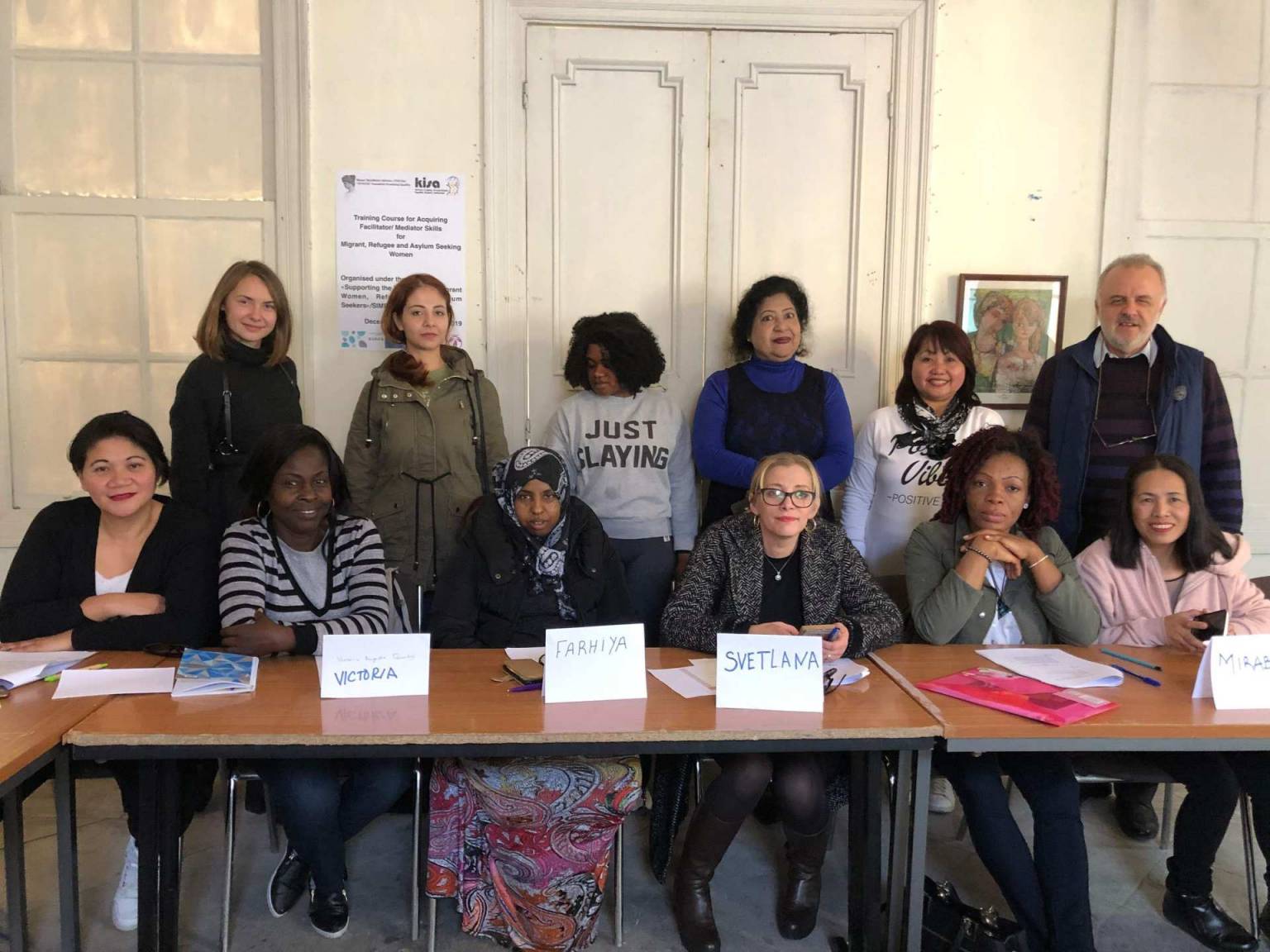
Address of the meeting place: Hotel AJAX Limassol, Cyprus
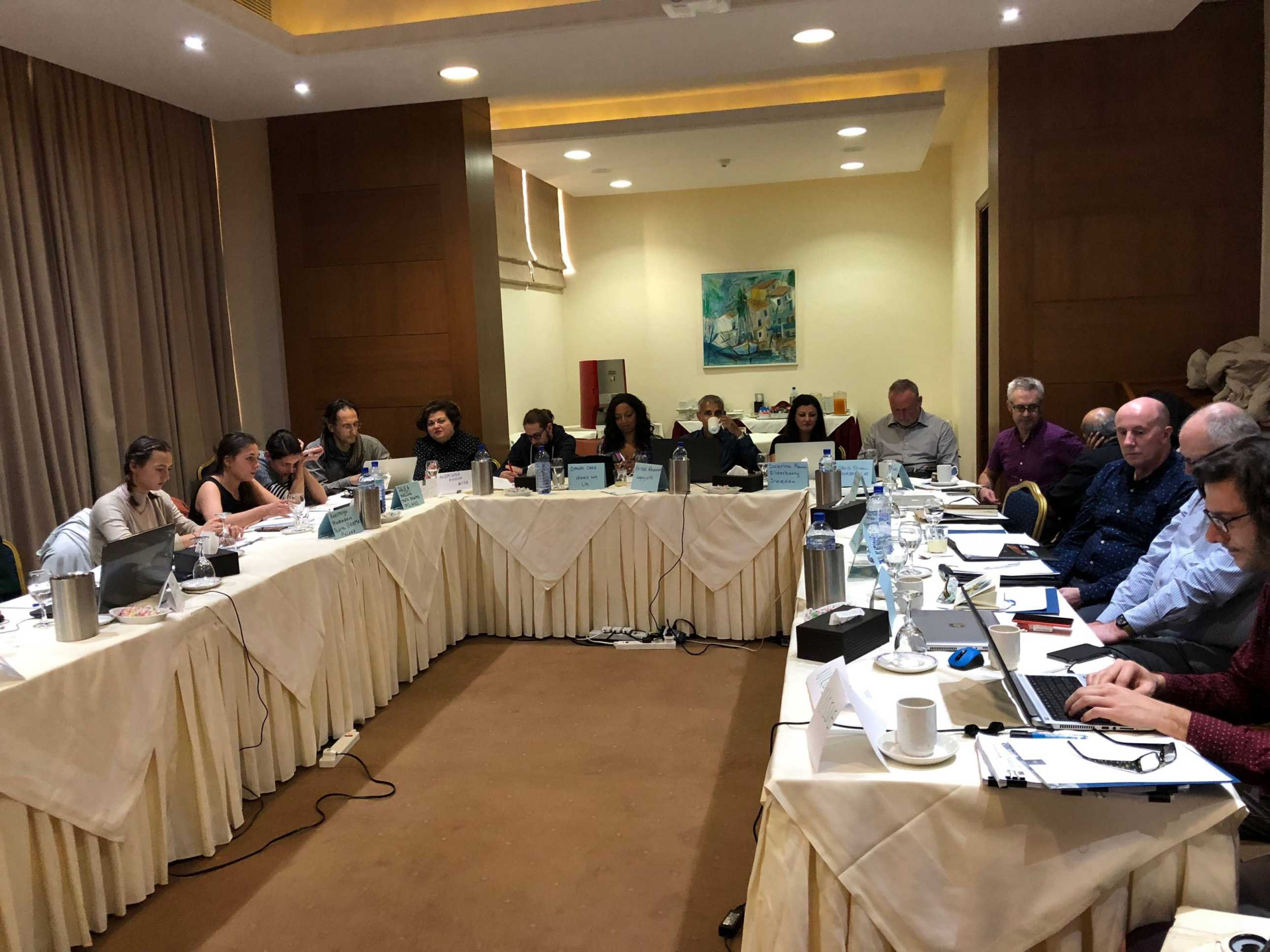
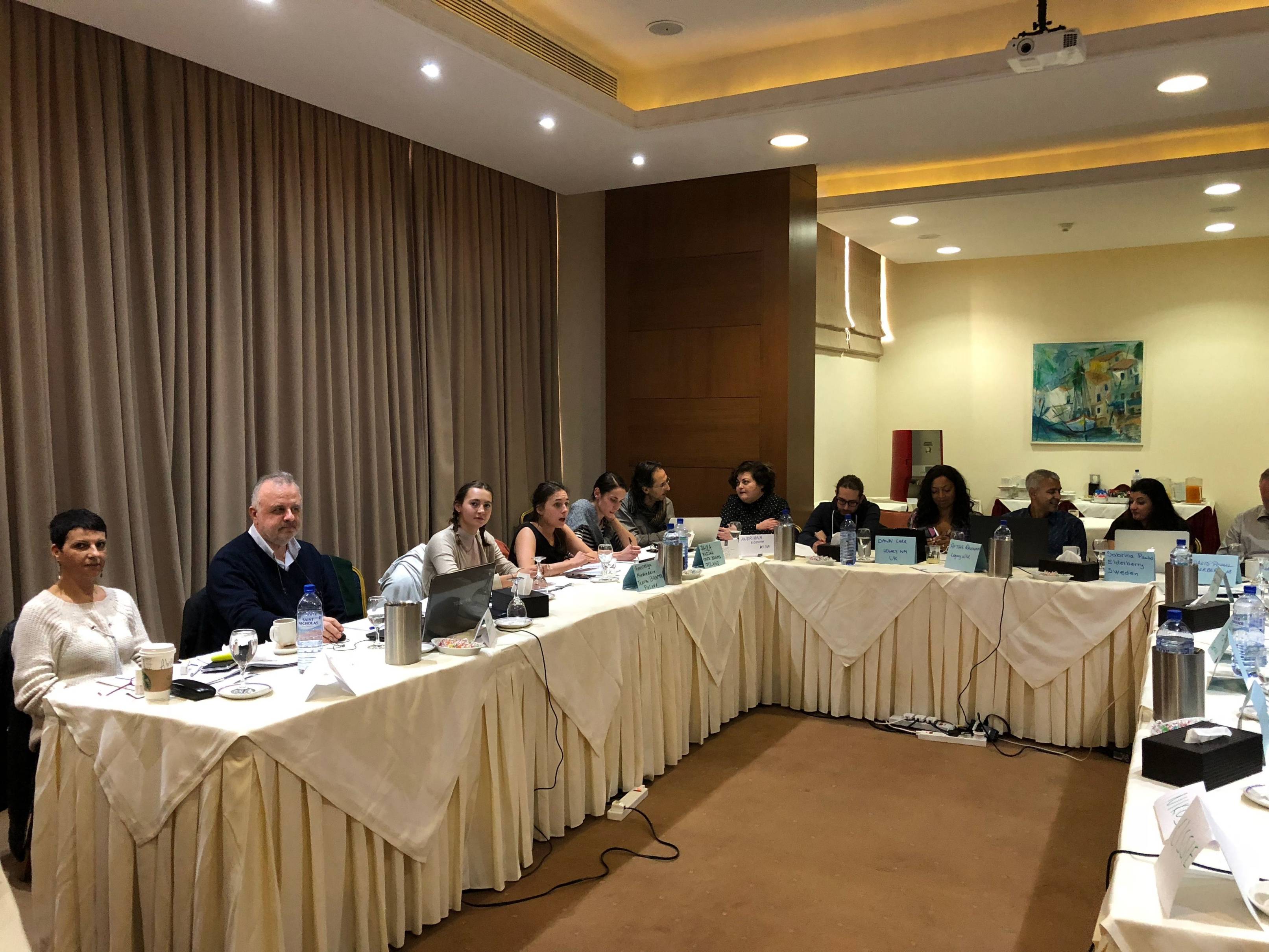
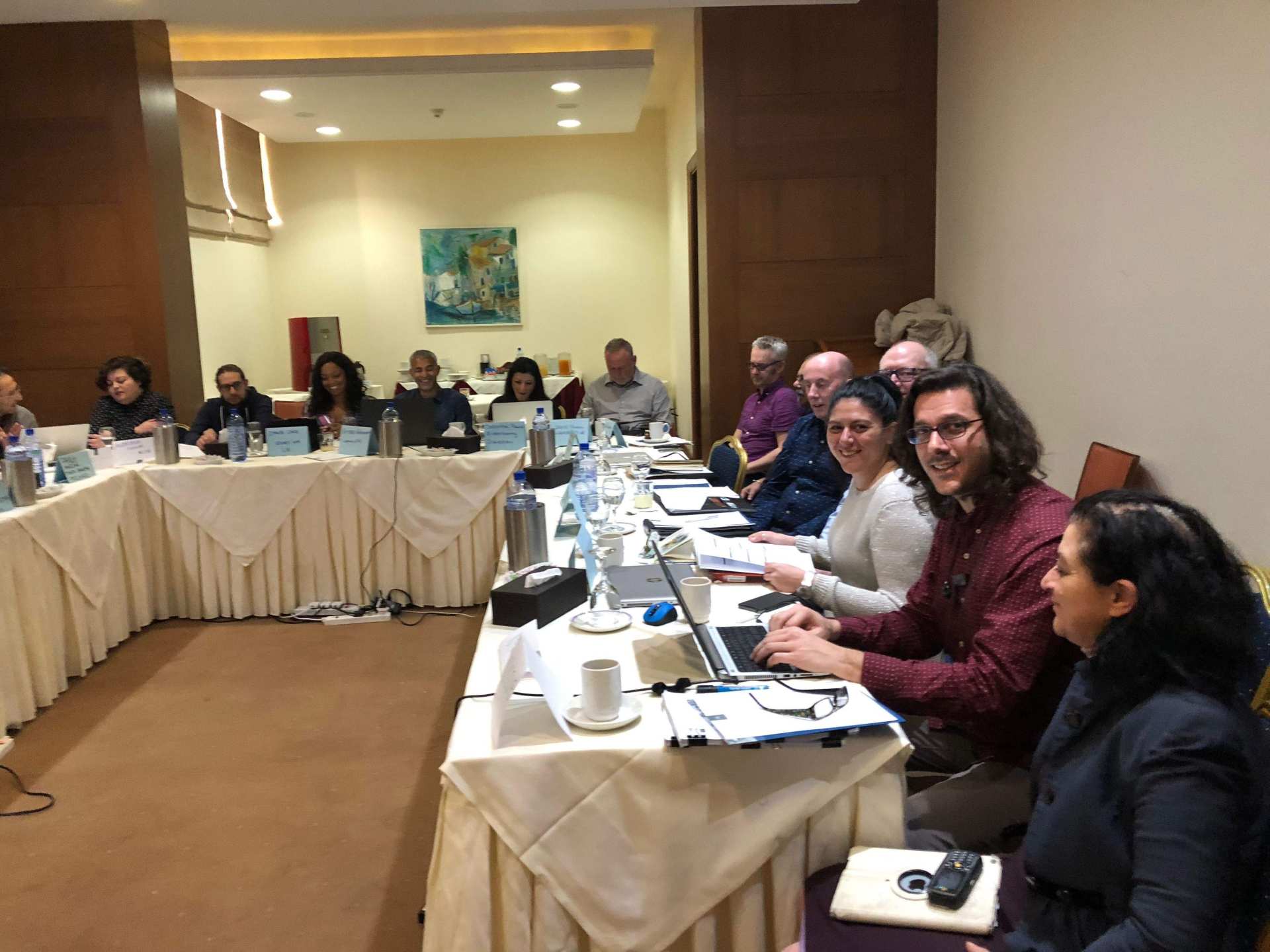
Address of the meeting place: Hotel Danae, Aegina
